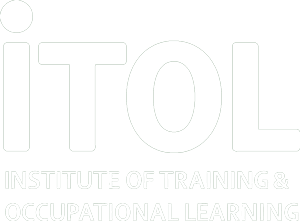Effective training managers must also be effective business managers.
Unfortunately, it’s easy for training managers to fall into the trap of feeling insulated within an organisation. They often feel free from the negative effects of any economic downturns because they aren’t viewed as a revenue-generating department. However, this misconception can put your training department in a dangerous position.
Training does not exist in a bubble. Your training department must deliver value to your organisation in a way that is in line with the big-picture goals. Otherwise, your department runs the risk of being viewed as an expense, rather than a source of value. If that happens, it puts your department in danger of being scaled back, or even eliminated, when budget cuts come around.
Demonstrate how your training department helps generate revenue.
In the long term, it pays to convince management that the training department is on the revenue-generating side of the equation, rather than an expense. Improving your business acumen is one pathway to accomplish this.
As training manager, you spend a lot of time working and collaborating with your organisation’s leadership. This is one of the most important relationships that you must develop. Support at this level helps bridge the gap between learning and development (L&D) and stakeholders. This strategic alignment is important to help you understand the needs of the business and how they connect to the company’s overall mission and goals. Strategic alignment also helps drive important key performance indicators (KPIs) both internally and at the customer level. A key part of the strategic alignment process is leveraging business acumen. Business acumen enhances your credibility as a training manager and as an asset to your organisation. However, before we can build business acumen, we first need to understand what it is.
What Is Business Acumen?
Business acumen is the ability to understand and handle all relevant business situations. This can be achieved by gaining knowledge of how things get done and why. Business acumen allows you to make more strategic training decisions based on this information. Thus, it’s a key skill for a training manager to have, because it’s a key characteristic of effective leaders more broadly.
How to Build Business Acumen
Here are three main areas to focus on in order to build business acumen:
- One of the most important traits of business acumen is understanding the financial literacy of the company. This includes profit and loss statements, budgets and forecasting. This understanding will help you to develop training that aligns with important business KPIs. The ability to confidently talk about ’Benefit Cost Ratios’ or ‘Return on Investment’ brings you in to the business conversation. It will also help with the long-term sustainability of the company.
- Strategic thinking also plays a role in business acumen. Having a clear understanding of the company’s vison and objectives. This goes beyond the day to day and focuses more on the bigger picture. This includes long-term planning and goals. The leadership team needs to be able to analyse all situations and make important decisions that align with the company goals and vision. The training manager’s role is to encourage and foster strategic thinking at every turn. Strategic thinking is a dynamic process and requires many adjustments and iterations to algin the company to a single, shared purpose. Are you “strategic” here’s what you need to know: A person who is strategic holds a more systematic view of the organisation and its fit with the external business ecosystem of stakeholders, suppliers, regulators and the like. A person who is strategic is less absorbed in their specialized daily work and more willing to sacrifice their personal efficiency to serve the broader interests of the organisation. Organisations increasingly recognise that increasing the quality and quantity of strategic thinkers — and giving them the resources to be successful — is in the business’ long-term interests.
- Training managers also play an important role in keeping up with current training and development trends. This helps foster business acumen and can help address the future skills and capabilities the company needs to be successful. This also means staying up to date with new learning technologies and market trends. Sharing your expertise with the company around the latest tech trends, and implementing new learning technologies when applicable, will help the company stay ahead of change.
Fostering Relationships With Stakeholders
Business acumen success hinges on the very important relationships you have with key stakeholders. These relationships are built on trust and communication and help demonstrate your value as a training manager. The expectations of the training programme from the leadership team should align with the company strategy and have an impact on training’s return on investment (ROI). Training ROI can be measured in several ways, such as through productivity, performance and customer satisfaction.
High-quality training that addresses key business needs will help build that important trust component of business acumen. This also allows the training to manage to be a strategic partner to the business. Also, seeking feedback from stakeholders and being able to adapt will keep you aligned with the organisation. This feedback is critical in the development of future programmes; it helps establish what is potentially working and what isn’t.
.
Elevating your business acumen and fostering productive relationships with executive stakeholders is pivotal for training managers aiming to provide valuable and impactful training programmes.
By staying informed and being flexible, you can position yourself as a trusted partner in driving business outcomes. Business acumen is a critical skill set for professionals at all levels within an organisation, from entry-level employees to top stakeholders, and especially for training managers. It empowers you to make well-informed decisions, contribute to the success of the business and adapt to the changing demands of the corporate world.

